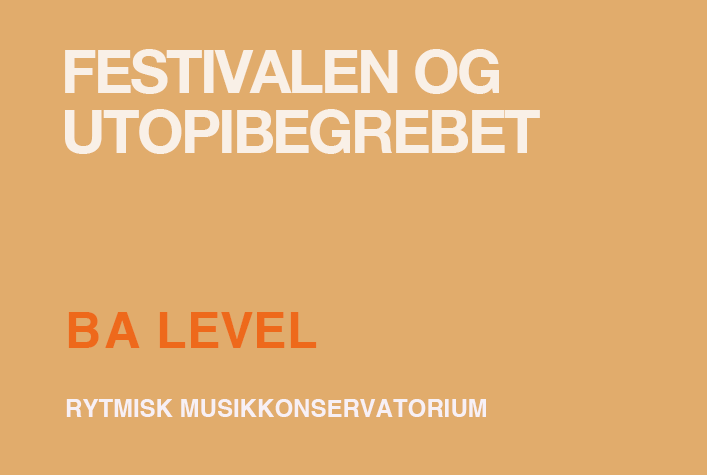
The Festivalen and the concept of Utopia
Teacher: Anna Ullman
It is no longer possible to hold music festivals during a global pandemic like COVID-19. This module uses this as an opportunity to consider the utopic potential of the festival form – culturally, socially and politically. Festivals have always been a special space where different rules apply, things can happen and the new arise – a so-called utopia. Through music, text and video material we shall look back at the freedom-seeking festivals of the hippie movements such as Woodstock (US), Glastonbury (UK), Thy-camp (DK) and Sound Festival at Dyrskuepladsen in 1971, that became the Roskilde Festival a years later. What can we learn from the 68’-generation and what kind of foundation did they leave for the younger generations to build upon today?
PREREQUISITES
It is beneficial to have an interest in festivals in general, experience with or ambition to perform at festivals, experiences as a volunteer or organizer at a festival and an interest in exploring and reflecting on how a festival performance can contribute to the development of one’s artistic practice.
LEARNING OUTCOMES
By the end of the module, the student will:
– have acquired a broader knowledge of the cultural history and sociocultural understanding of the festival form.
– be able to critically reflect on the festival’s role in culture, society and economy.
– have the knowledge of the way of thinking of the youth rebellion in 1968 and it’s status in contemporary rebellious movements.
CONTENT
The work is comprised of the following fields:
Art history, experience economy, aesthetics theory, live music theory, social movements
TEACHING AND WORKING METHODS
– Presentations
– Debates
– Group assignments
– Practical exercises
GROUP FORMATION
Normally 8-9 students per class.
ASSESSMENT
A topic of the student’s choice will be presented within the framework of the themes of the module in the form of an essay (5 standard pages).
The essay is turned in through Wiseflow before the deadline that is set by the Study Administration.
REFERENCES
The course will make broad use of the teacher’s own book “De sidste drømmere. Roskilde Festival i et halvt århundrede”, published in October 2020 marking the 50th Roskilde Festival. Analyses in the book will be tried and challenged in plenum during the course. Other relevant literature from festival research will be included as well, such as newspaper articles and video content from Danish Radio archives and YouTube.
WHEN
TBA
WHERE
Rhythmic Music Conservatory
ONLINE
No
LEVEL
BA
ECTS
2,5
LANGUAGE
Danish – English if required by participants